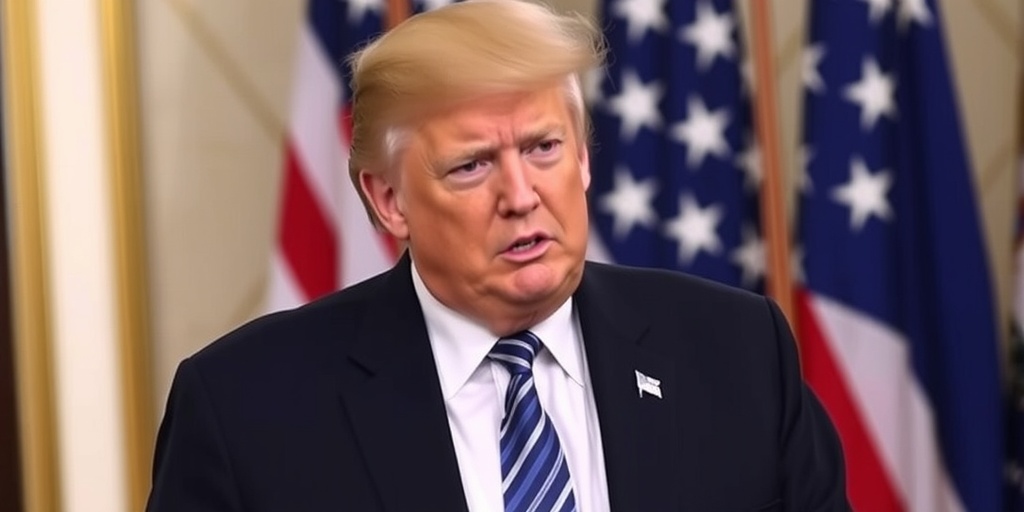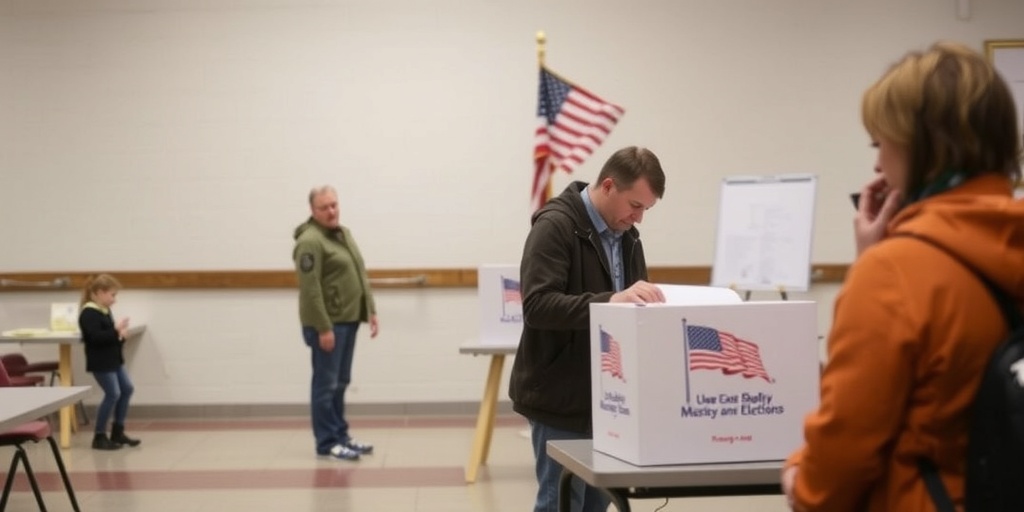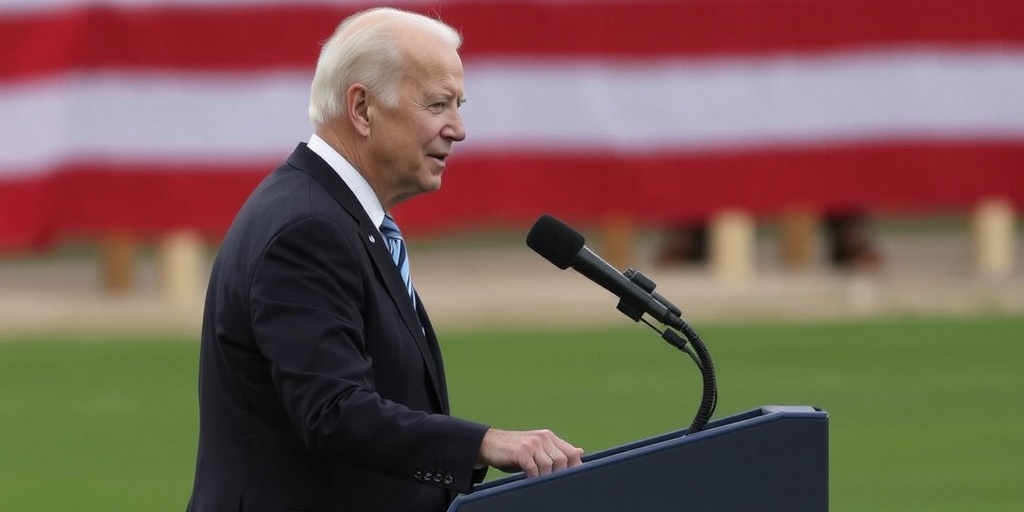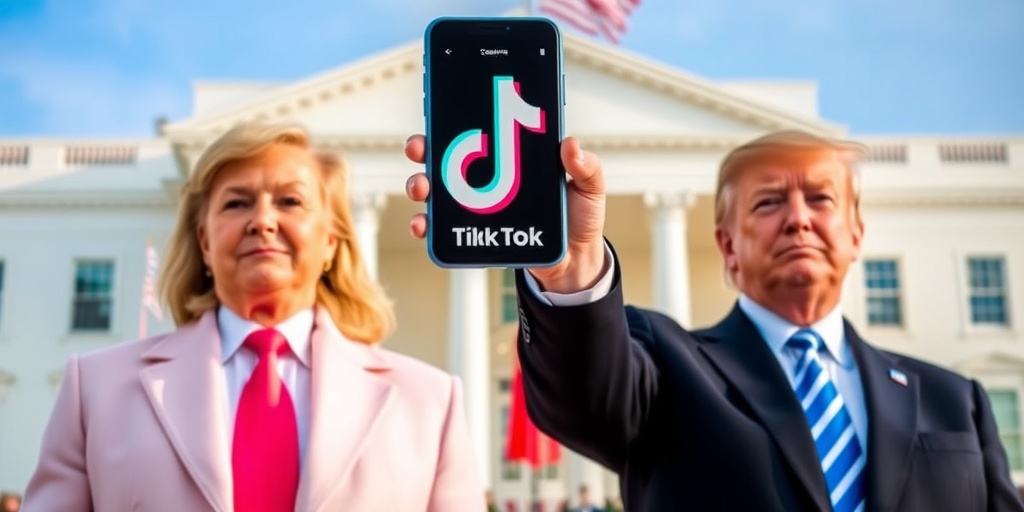Now Reading: Biden and Trump Unite for Gaza Cease-Fire Deal
-
01
Biden and Trump Unite for Gaza Cease-Fire Deal
Biden and Trump Unite for Gaza Cease-Fire Deal
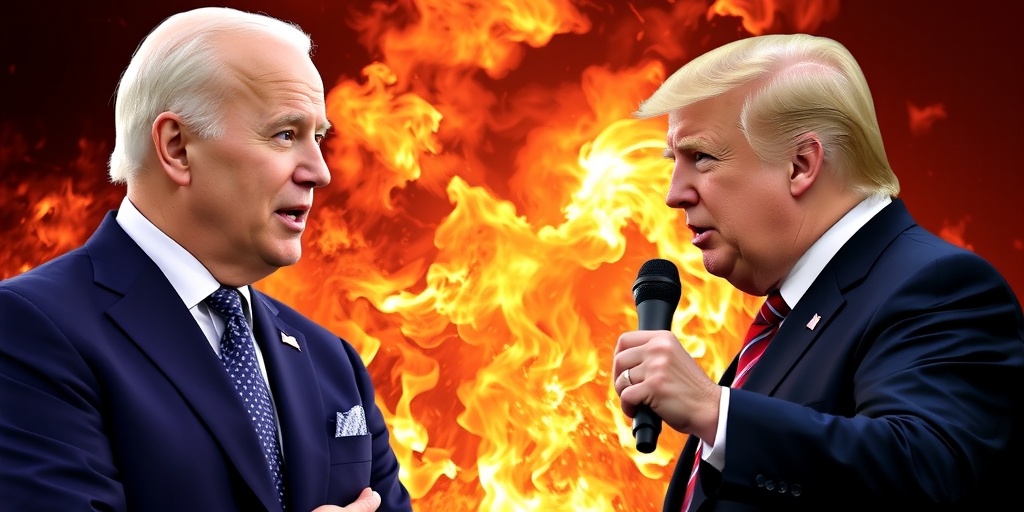
Historic Gaza Cease-Fire Agreement Reached Amid Unprecedented Collaboration Between Biden and Trump
In a remarkable turn of events, a long-anticipated cease-fire agreement in Gaza was announced on Wednesday, achieving consensus largely through an unexpected collaboration between President Joe Biden and President-elect Donald J. Trump. Setting aside their often contentious relationship, the two leaders unified their efforts to end the ongoing hostilities that have resulted in immense suffering over the past 15 months, as well as to facilitate the release of hostages held in the Gaza Strip.
The cease-fire is slated to take effect this Sunday, on the eve of Biden’s transition out of the White House. Both presidents recognized the significance of settling this pressing matter before the inauguration, with Biden hoping to leave behind a legacy that culminated in the cessation of the deadliest conflict in Israeli-Palestinian history. Meanwhile, Trump sought to divert attention from the ongoing war as he prepares for his return to the presidency, allowing him to focus on other political priorities.
In an unusual display of bipartisanship, the two presidents directed their respective teams to work collaboratively to press both Israel and Hamas toward finalizing the cease-fire. This cooperative dynamic, typically rare during presidential transitions in Washington, raised eyebrows and offered a glimpse of hope amid the prevailing political polarization. However, as is often the case in politics, the celebration of the agreement quickly devolved into disputes over which leader deserved more credit.
While Biden awaited official updates from regional players, Trump preemptively announced the agreement through a triumphant social media post, declaring it an "EPIC cease-fire agreement" that reflected his recent electoral success. When Biden finally addressed the media that same day, he acknowledged the collaboration but bristled at inquiries regarding credit for the agreement, dismissing the questions as somewhat humorous.
Nonetheless, political analysts highlight the significance of this collaborative effort in stark contrast to the typical dynamics during transitions of power. "It really is extraordinary," remarked Mara Rudman, a former deputy special envoy for Middle East peace under Barack Obama. Rudman emphasized that the partnership did not guarantee future collaboration on other issues, noting that sometimes political expediency aligns with doing the right thing.
The final agreement, however credit is assigned, reflected input from both administrations. It mirrored a proposal put forth by Biden last May, which his envoys had painstakingly negotiated with both parties. Trump’s impending return to power and his blunt threats, warning that “all hell will break out” if hostages were not released by the time he assumed office, also shifted the dynamics on the ground. Israeli Prime Minister Benjamin Netanyahu, who had relied on Trump’s support during his first term, faced new calculations as he weighed the implications of prolonged conflict.
The communications following the announcement mirrored these shifting allegiances. Netanyahu was quick to reach out to Trump to express gratitude, only subsequently thanking Biden. In a statement, Netanyahu highlighted Trump’s commitment to ensuring Gaza does not become a terrorist stronghold, though Biden was noted only in passing.
Despite the complexity of the motivations behind the cease-fire, diplomats and political analysts agreed that both presidents played crucial roles in its development. Trump’s persistent push for a resolution, coupled with a willingness to collaborate directly with Biden’s envoys, facilitated the agreement’s conclusion.
Former Representative Tom Malinowski emphasized the intricacies of the relationship. "This was Biden’s deal, but as much as I hate to say it, he couldn’t have done it without Trump," he reflected, referencing Trump’s candid conversations with Netanyahu.
As the political landscape shifted, both presidents found themselves navigating a complicated web of relationships and expectations. Trump’s past time in office had seen a dramatic realignment of U.S.-Israel relations, and he had distanced himself from Netanyahu prior to the transition. Biden’s own relationship with the Israeli leader had been strained, especially after the devastating Hamas-led attack on October 7, 2023.
Ultimately, the conclusion of the cease-fire agreement represents not only a significant diplomatic achievement but also a rare moment of bipartisan cooperation in U.S. politics. As Biden articulated his relief upon the announcement, he reiterated that the agreement had been negotiated under his administration, though its implementation would largely fall to the incoming leadership.
In doing so, Biden reflected the often-complex interplay of political motivations, suggesting a simultaneous desire to assert his administration’s legacy while acknowledging the collective efforts that brought the cease-fire to fruition. Meanwhile, Trump capitalized on the moment to tout his influence even while out of office, signaling his anticipation of future victories upon his return.
As the cease-fire takes effect, what remains to be seen is whether this momentary alliance will lead to sustained peace in the region or simply become another chapter in the ongoing saga of Israeli-Palestinian relations.
Stay Informed With the Latest & Most Important News
Previous Post
Next Post
Previous Post
Next Post
-
 01New technology breakthrough has everyone talking right now
01New technology breakthrough has everyone talking right now -
 02Unbelievable life hack everyone needs to try today
02Unbelievable life hack everyone needs to try today -
 03Fascinating discovery found buried deep beneath the ocean
03Fascinating discovery found buried deep beneath the ocean -
 04Man invents genius device that solves everyday problems
04Man invents genius device that solves everyday problems -
 05Shocking discovery that changes what we know forever
05Shocking discovery that changes what we know forever -
 06Internet goes wild over celebrity’s unexpected fashion choice
06Internet goes wild over celebrity’s unexpected fashion choice -
 07Rare animal sighting stuns scientists and wildlife lovers
07Rare animal sighting stuns scientists and wildlife lovers













